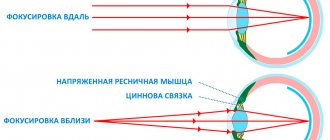What is toxicosis and gestosis in pregnant women?
For many, the word “toxicosis” is strongly associated with pregnancy, despite the fact that this word actually means poisoning (intoxication) with harmful substances entering the body from the outside or produced by the body itself. And if toxicosis of pregnant women in the early stages is a completely natural phenomenon, then there is another type of intoxication, which is called gestosis of pregnant women. It is talked about much less often because it is a complication of pregnancy and does not affect every pregnant woman.
What is the difference between gestosis and toxicosis of pregnant women? Let's figure it out.
What is pregnancy toxicosis?
In the first few weeks (up to 16 weeks), the body of a pregnant woman is reconstructed. Metabolism and hormonal levels change, and the load on all organs and systems increases. In addition, a special pregnancy center is formed in the brain, which is adjacent to the areas responsible for vomiting, nausea, and salivation. And since the pregnancy center is active, neighboring areas of the brain are also irritated. Toxicosis of pregnant women in the early stages becomes an indicator of these changes, causing nausea and vomiting, a general state of lethargy and weakness.
Toxicosis of pregnant women in the early stages does not develop in all pregnant women, but quite often. There are no clear signs that will tell whether the expectant mother will have toxicosis or not. A woman who is not familiar with toxicosis during her first pregnancy may encounter it in her second, and vice versa. Often toxicosis can be caused by odors or a particular type of food.
Toxicosis comes in varying degrees of severity: mild, moderate and severe. If vomiting occurs no more than 5 times a day, then such toxicosis is classified as mild. But problems with the gastrointestinal tract or pathology of the gallbladder and pancreas can increase toxicosis in pregnant women, which ultimately leads to undesirable consequences: exhaustion, disturbance of water-salt balance, lack of normal nutrition of the fetus, its oxygen starvation, which can lead to developmental pathologies . Severe toxicosis requires mandatory hospitalization, since in this situation the life of the expectant mother is in danger.
What is gestosis?
Preeclampsia is fundamentally different from toxicosis of pregnant women, first of all, in the time of occurrence. Gestosis in pregnant women develops in the later stages, while toxicosis develops in the first trimester and ends at 12–16 weeks.
The cause of gestosis is completely different from toxicosis in the early stages. In Russia, doctors call gestosis a condition caused by an increase in blood pressure in the expectant mother. These conditions are associated with accompanying sensations - weakness, dizziness, vomiting and nausea, cramps and a general feeling of poisoning, as the kidneys can no longer cope with the load. Although from a certain point of view, gestosis is also toxicosis in late pregnancy, but these are very different types of “poisoning”.
Why does dizziness occur during pregnancy?
In addition to changes in the body, there may be other causes of dizziness.
The most common:
- rapid change of body position or turn of the head;
- motion sickness in transport;
- being at a significant altitude;
- lack of fresh air in the room;
- heat - both outside and in the room;
- decreased blood sugar levels due to a long break between meals or constant consumption of low-calorie foods;
- toxicosis, especially in the 1st trimester;
- changes in weather and atmospheric pressure;
- when the expectant mother stands on her feet for a long time or does not change her position.
There are a number of factors that can confidently predict dizziness in an upcoming pregnancy. As a rule, they are associated with diseases the woman has suffered, such as:
- diabetes;
- anemia;
- diseases of the cardiovascular system;
- micro-strokes;
- initial stage of multiple sclerosis;
- cervical osteochondrosis;
- brain tumors;
- problems of the vestibular apparatus;
- inflammation of the inner ear;
- weather sensitivity;
- vegetative-vascular dystonia;
- head injuries;
- epilepsy;
- increased intracranial pressure.
All these conditions and diseases are accompanied by dizziness. If a pregnant woman does not have the above reasons, then dizziness is a consequence of pregnancy. And here it is important to know the reasons for this condition, which depend on the duration of pregnancy.
Photo source: shutterstock.com
Headache treatment
Pregnant women in the 2nd trimester cannot take any medications for headaches. It is important to correctly calculate the dosage so as not to exceed the maximum permissible amount of the active substance that is safe for the normal development of the fetus. However, first of all, it is important to ensure proper rest, avoid stressful situations and follow the principles of proper nutrition.
For severe headaches, your doctor may prescribe medications that you can take at home. These include:
- non-steroidal anti-inflammatory drugs (Ibuprofen, Meloxicam and others) - they relieve pain and inflammation, but can have a negative effect on the gastrointestinal tract;
- analgesics (painkillers) - help relieve attacks of acute pain (Analgin, Citramon, Paracetamol);
- other groups of drugs, including muscle relaxants and antidepressants, are used only as prescribed by a doctor.
The Clinical Institute of the Brain has all the conditions for diagnosing and treating headaches, including in the second trimester of pregnancy. The center is equipped with equipment for a comprehensive examination, making it possible to make an accurate diagnosis. Treatment is carried out on an outpatient or inpatient basis, depending on the cause of the headache, the severity of the disease and other factors.
Clinical Brain Institute Rating: 5/5 — 2 votes
Share article on social networks
Causes of dizziness during pregnancy by trimester
At any time, if dizziness is short-lived and rare, then you should not worry.
1st trimester
In the early stages of pregnancy, the main cause of dizziness is the body’s adaptation to the changes occurring in it. In addition, there is intense hormonal changes, which can also cause dizziness.
Causes of dizziness:
- being in a stuffy, hot room;
- travel in transport;
- sudden change in body position.
Often dizzy due to toxicosis in the early stages of pregnancy.
Dizziness in the 1st trimester, as a rule, does not require treatment, but you should definitely inform your doctor about it.
If in the 1st trimester dizziness is pronounced, occurs frequently and is accompanied by weakness, abdominal pain and bleeding - go to the hospital immediately! Perhaps these are signs of a threatened miscarriage or ectopic pregnancy!
2nd trimester
The body went through an adaptation period and adapted to the new state. But the uterus still continues to grow and is already beginning to put pressure on the arterial vessels and nearby organs. This can cause dizziness in the 2nd trimester of pregnancy.
Other causes of dizziness:
- long periods of inactivity (hypodynamia);
- long stay in a stuffy or hot room;
- oxygen starvation (during this period of pregnancy, the blood flow of the uterus is already 1/3 of the total blood circulation, because of this, some organs, including the brain, may lack oxygen);
- a sharp drop in pressure;
- increased intracranial pressure;
- anemia (low level of hemoglobin in the blood);
- gestational diabetes (the pancreas of the expectant mother cannot cope with increased insulin production, the disease goes away after childbirth).
If you experience constant dizziness in the 2nd trimester, especially at week 24, be sure to tell your doctor about it.
3rd trimester
In late pregnancy, in the absence of any diseases, the main cause of dizziness may be sleeping or resting in the wrong position. From the 27th week you can only lie on your side. When lying on your back, the significantly enlarged uterus compresses the general blood flow, which can lead to dizziness.
And although dizziness in the last trimester is quite common, its duration should not exceed 30 minutes.
Other reasons:
- the expectant mother stands on her feet for a long time;
- walks a lot;
- blood sugar levels decreased.
After the 38th week, the body begins to prepare for childbirth, there is a flow of blood to the pelvic organs, which, in turn, can also cause dizziness.
If your eyes become dark and your blood pressure rises during dizziness, this is a sign of impending fainting! We need to go to the hospital urgently!
- mommy!
Dizziness during pregnancy - normal or pathological, how to get rid of it? In medicine, dizziness is understood as a slight lack of coordination, a feeling of intoxication, or a false impression of the rotation of one’s body or objects. This phenomenon is not an independent disease, but this symptom is diagnosed in many conditions, including pregnancy. Often one of the early signs indicating imminent motherhood is dizziness, weakness, drowsiness and nausea.
Dizziness is an early sign of an “interesting situation”
For the first time, dizziness during pregnancy can appear in the very early stages - literally a few days before the expected period.
This is due to changes in the hormonal balance in the body of the expectant mother - the level of progesterone gradually increases, which can lead to headaches and dizziness. In the first weeks, a pregnant woman's body undergoes serious changes. Her cardiovascular system works with double load, the volume of circulating blood increases and redistributes, and due to the growing uterus and placenta, the blood supply to the pelvis increases. The walls of blood vessels dilate, the heart rate increases, blood pressure decreases, and all together this leads to the fact that the brain may not receive the necessary nutrition, which leads to short-term dizziness in the first trimester. These mild disorders are caused by physiological factors and do not pose a danger to the mother and the unborn baby.
Dizziness in the first trimester
But there are other reasons that cause this condition in pregnant women. These include:
- — toxicosis of the first half of pregnancy is a peculiar reaction of the mother’s body adapting to bearing a child. Accompanied by nausea, vomiting, weakness, frequent dizziness; - a sharp change in blood pressure - a decrease or increase, spasm or dilation of blood vessels; - acute hypoglycemia (low blood glucose levels) due to lack of nutrition or a sharp release of insulin into the blood; - anemia of a pregnant woman - as a result of a decrease in hemoglobin, the supply of oxygen to tissues deteriorates, and the brain primarily suffers from this.
Therefore, if attacks of dizziness occur frequently, last longer than a few seconds, are accompanied by weakness, heavy sweating and fainting, you should consult a doctor to find and eliminate the problem.
In addition to health-related factors, there are external causes that can cause attacks of dizziness. These are heat, changes in atmospheric pressure, a stuffy room, motion sickness in transport, a sudden transition from a horizontal to a vertical position, as well as hyperventilation of the lungs due to rapid breathing.
Why do you feel dizzy in the second half of pregnancy?
In the second half of pregnancy, dizziness occurs less frequently, as the body has already adapted to its new role. This mainly occurs after sleeping or resting on the back (the uterus can compress the inferior vena cava, and blood stagnates), or with a sudden change in body position.
But sometimes dizziness manifests itself as a symptom of gestosis, arterial hypertension or other extragenital pathology. Therefore, if the symptom recurs frequently, consultation with a neurologist and regular monitoring by an obstetrician-gynecologist are necessary.
How to get rid of dizziness during pregnancy
The way to combat dizziness depends on the cause that causes it. General recommendations include regular healthy eating, moderate physical activity, and sleeping in a well-ventilated area.
It is advisable to sleep on your side, on a medium-hard mattress, since in the “lying on your back” position, the enlarged uterus compresses the inferior vena cava. In the morning you need to get out of bed not abruptly, in one jerk, but gradually - first sit down, then lower your legs, stretch, wait a while, and only then get to your feet. helps a lot - this is not only an excellent prevention of varicose veins of the lower extremities, but also an effective way to combat dizziness associated with blood redistribution.
To help with dizziness and weakness that appear with low blood pressure, you can drink a cup of warm sweet tea or weak coffee (unless there are contraindications). This will help tone blood vessels and raise blood sugar levels.
If an attack of dizziness is accompanied by nausea, weakness, darkening of the eyes, then you must immediately lie down so that your head is lower than the level of your body, and put a blanket or pillow under your feet. If a pregnant woman has lost consciousness, then she must be laid down, her legs raised, her constricting clothes unbuttoned, fresh air provided, her face sprinkled with cold water, a cotton swab soaked in ammonia allowed to sniff, and wipe her temples with it.
When dizziness occurs against the background of arterial hypertension, anemia or other pathology, the underlying disease . In itself, dizziness during pregnancy does not pose a danger to the mother and baby, but if there are frequent problems with coordination, you should not drive a car or engage in potentially dangerous work. If dizziness is accompanied by fainting, the risk of injury from a fall increases, so caution should be exercised.
How does dizziness manifest?
Dizziness is an insecure feeling of oneself and a feeling of instability of one’s own body, when it seems that everything around is moving, floating in a circle, balance is lost, the floor disappears from under one’s feet.
Manifestations of dizziness:
- weakness;
- it gets dark in the eyes;
- nausea;
- noise and/or ringing in the ears;
- fingers and toes go numb;
- feeling of coolness throughout the body;
- impaired coordination of movements.
If dizziness is accompanied by weakness, tinnitus and nausea, fainting is possible! Call an ambulance immediately! Lean on the support and don't move.
Photo source: shutterstock.com
Treatment
In each individual case, the doctor selects an individual treatment regimen, taking into account the woman’s condition, her age and clinical manifestations.
Therapy for edema: a protein-rich and vitamin-rich diet with limited fluid and salt is prescribed. For edema, the permissible dose of fluid is 800-1000 ml per day.
Prescriptions for impaired renal function - taking diuretics under the supervision of a doctor.
To relieve spasms, the doctor will recommend sedatives (valerian, motherwort) and special medications.
When blood thickens, blood thinners are prescribed.
Treatment of gestosis in the 3rd trimester is carried out under the strict supervision of a doctor.
In what cases is hospitalization necessary:
- blood pressure readings are above 140/90;
- “floaters before the eyes”, dizziness;
- nausea, vomiting;
- pain in the upper abdomen;
- protein in urine is higher than 0.3 g/l;
- sudden weight gain.
Complex therapy in a hospital setting - normalization of blood pressure, improvement of blood supply to the placenta and uterus, relieving spasms.
Treatment methods and first aid
First aid for dizziness
To avoid falling and injuring yourself and your unborn child, you should know the rules of behavior when dealing with dizziness:
- immediately try to sit or lean against a vertical surface;
- Self-massage of the head, neck and ears using circular movements without pressure helps;
- you should immediately provide access to fresh air (ask to open the window, loosen the belts and waistbands on your clothes, unfasten the top button);
- You can put a cold compress on your forehead;
- It will be useful to have either smelling salts, ammonia, or essential oil with you - inhaling pungent odors helps with dizziness.
Treatment of dizziness during pregnancy
During normal pregnancy, dizziness is not treated. Only three cases require medical intervention:
- anemia;
- gestational diabetes;
- low or high blood pressure.
You can alleviate your condition with these diseases yourself:
- for anemia, introduce iron-rich foods into the diet and take iron-containing medications;
- for low blood pressure - drink sweet tea, you can (but without abusing) weak sweet coffee, tincture of ginseng or eleutherococcus;
- If you have high blood pressure, drink ginger tea or warm milk.
Gestational diabetes should be treated under the supervision of a doctor. Do not self-medicate under any circumstances!
Some useful tips to reduce dizziness
- Avoid staying in one body position for long periods of time.
- Rise slowly from a sitting or lying position.
- Eat right. Refrain from long breaks between meals; it is better to have a snack during the day. Eat fresh fruits, vegetables, dried fruits, and other healthy foods.
- Avoid hot baths.
- Wear loose, comfortable clothing.
- Spend more time outdoors.
- Do not stay in stuffy, unventilated rooms.
If you feel weak, try the following:
- take a sitting or lying position;
- take a deep breath;
- loosen any tight clothing, open windows and move in the direction of air circulation.
During pregnancy, be sure to include iron-rich foods in your diet.
Changes in the body in the second trimester of pregnancy
The second trimester according to the obstetric calendar begins at week 13 and continues until week 26. Physiological changes in the female body are manifested:
- Increased breast volume. The reason for this restructuring is the intensive production of sex hormones (estrogen, progesterone) in the 2nd trimester. The pain that occurred at the beginning of pregnancy disappears. Increased sensitivity of the nipples appears.
- False contractions. Weak in intensity, short-lived cramp-like sensations are training the uterus before childbirth. If they become more frequent and painful, contact your supervising obstetrician-gynecologist.
- Rounded belly. The baby’s weight increases, the uterus, and therefore the abdomen, grows. The gained kilograms reduce a woman’s mobility. Actions that were previously easy to perform now require effort.
- Change in skin color. Active subcutaneous microcirculation provokes a change in shade. It becomes darker, which is most noticeable around the nipples, in separate areas on the face, and linearly on the stomach. Prolonged sun exposure aggravates the situation, so it is recommended to use sunscreen.
- Stretch marks. A growing belly, enlarged breasts, and weight gain lead to stretching of the skin and the appearance of pink stripes. Another reason is progesterone, which blocks collagen synthesis. The dermis loses moisture and is more easily injured.
- Deterioration of nasal breathing, increased bleeding of gums. Increased blood flow thickens the mucous membranes of the nasal passages, causing snoring. Your gums become sensitive, so it is recommended to use a soft toothbrush.
Interesting: Dizziness at 31 weeks and later in pregnancy
Diagnostics
The set of diagnostic measures for dizziness includes:
- MRI of the brain – exclusion of organic lesions.
- MRI of intracranial arteries - detection of signs of intracerebral blood flow disturbances.
- MRI of the cervical spine - detection of dystrophic changes complicated by herniation.
- Ultrasound of the vessels of the neck - determination of the intensity of blood movement.
- Ultrasound of the thyroid gland.
- Complete blood count - assessment of hemoglobin level.
- Consultations with a neurologist, otorhinolaryngologist, cardiologist. Sometimes diseases of the inner ear, heart defects, and neurological disorders that worsen during pregnancy provoke dizziness.
Interesting: Headache in the temples during pregnancy: causes, treatment and prevention
X-ray methods (classical X-ray, computed tomography) are contraindicated during pregnancy due to the teratogenic effect of ionizing radiation.
First aid
If you are experiencing signs of dizziness, you should lie down so that your head and shoulders are slightly elevated.
If possible, close your eyes and try to calm your inner fear. Put something cold on your head: a bottle, ice. You can wipe your temples and forehead with vinegar. A pregnant woman can make a mint compress; if this does not help, use Zvezdochka balm. Rub a little whiskey with the balm.
We measure blood pressure and heart rate, if necessary and with the permission of the attending physician, and stabilize the condition to normal. Heart rate should not exceed more than 100 beats per minute, but the pressure rate is individual and depends on the general state of health.
If you experience persistent vomiting or suffer from attacks, you must call an ambulance. We must try to keep the woman conscious and prevent fainting.
Windows should be open if it is not hot. Otherwise, turn on the fan so that it blows on the pregnant woman, but is not directed at her.
A throbbing headache in the temples can be an isolated disease, or it can be a symptom of some serious and dangerous illness, so it is very important to consult a doctor in time.
Headache can also be a sign of occipital neuralgia. You can find out what it is here.And dizziness can be a symptom of osteochondrosis of the cervical spine and accompanying VSD. More details https://gidmed.com/bolezni-nevrologii/golovokruzhenie/golovokruzhenie-pri-osteohondroze.html.







